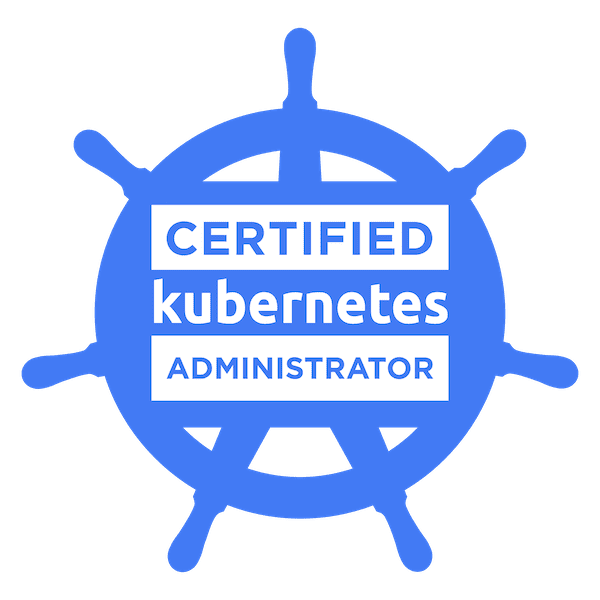Ultimate CKA Cheat Sheet: Ace Your Kubernetes Exam
Getting ready for the Certified Kubernetes Administrator (CKA) exam? This cheat sheet will help you prepare for your Kubernetes certification. Let’s look at the important areas you need to know to become a certified Kubernetes expert.
Key Takeaways
| Aspect | Details |
|---|---|
| Exam Duration | 2 hours |
| Passing Score | 66% |
| Main Domains | 5 (Cluster Architecture, Workloads & Scheduling, Services & Networking, Storage, Troubleshooting) |
| Highest Weighted Domain | Troubleshooting (30%) |
| Key Skills | kubectl mastery, hands-on practice, time management |
1. Exam Overview
Let’s cover the basics of the CKA exam:
- Duration: 2 hours
- Format: Online, proctored, performance-based test
- Passing score: 66%
- Cost: $395 (includes one free retake)
- Validity: 3 years
The exam tests your ability to solve real-world Kubernetes administration tasks using the command line. You’ll have access to the official Kubernetes documentation during the exam, so make sure you’re comfortable using it quickly. This open-book approach focuses on practical skills, similar to what you’d do as a real Kubernetes administrator.
2. Exam Domains
The CKA exam covers five main areas. Here’s what you need to know for each:
CKA Exam Domains and Weightage
- Cluster Architecture, Installation & Configuration: 25%
- Workloads & Scheduling: 15%
- Services & Networking: 20%
- Storage: 10%
- Troubleshooting: 30%
Knowing how much each area is worth helps you plan your study time. Spend more time on important areas like Troubleshooting and Cluster Architecture, but make sure you understand all parts well.
3. Cluster Architecture, Installation & Configuration (25%)
This part is about setting up and managing Kubernetes clusters. Key topics include:
- Installing and configuring a Kubernetes cluster using kubeadm
- Implementing Role-Based Access Control (RBAC)
- Upgrading Kubernetes clusters
- Backing up and restoring ETCD
Learn more about Kubernetes cluster architecture to build a good foundation for this part. Understanding the parts of a Kubernetes cluster, like the control plane and worker nodes, is important. Practice setting up clusters from scratch and get comfortable with cluster upgrade steps.
4. Workloads & Scheduling (15%)
In this section, you’ll need to show your skills in:
- Deploying and managing applications
- Scaling applications
- Configuring health checks
- Using ConfigMaps and Secrets
Get hands-on experience with Kubernetes pods and workloads to do well in this part. Practice creating and managing different types of workloads, including Deployments, StatefulSets, and DaemonSets. Learn how to use labels and selectors effectively for managing and scaling applications.

5. Services & Networking (20%)
This part covers important networking ideas in Kubernetes:
- Creating and managing services
- Implementing network policies
- Configuring Ingress resources
- Understanding Kubernetes networking concepts
Master Kubernetes networking to feel more confident in this area. Get familiar with different service types (ClusterIP, NodePort, LoadBalancer) and when to use them. Practice setting up network policies to control traffic between pods. Understanding how Kubernetes networking works, including how pods talk to each other and how services are found, is crucial for this section.
6. Storage (10%)
While this part is worth the least, it’s still important to understand:
- Persistent Volumes and Persistent Volume Claims
- Storage Classes
- Dynamic provisioning
- Volume types and use cases
Practice creating and managing Persistent Volumes (PVs) and Persistent Volume Claims (PVCs). Learn how to set up Storage Classes for automatically providing storage resources. Get to know different volume types Kubernetes supports, like emptyDir, hostPath, and cloud provider-specific volumes.
7. Troubleshooting (30%)
As the most important part, troubleshooting is a key skill for Kubernetes administrators. Focus on:
- Debugging application failures
- Cluster-level troubleshooting
- Node troubleshooting
- Logging and monitoring
- Essential kubectl commands for troubleshooting
Improve your Kubernetes management skills with kubectl to do well in this part. Practice finding and fixing common problems like pod failures, network connection issues, and resource limits. Learn to use kubectl commands for debugging, like ‘kubectl describe’, ‘kubectl logs’, and ‘kubectl exec’. Get familiar with Kubernetes events and how to read them for troubleshooting.
8. Exam Preparation Tips
To increase your chances of passing, follow these tips:
Top CKA Exam Preparation Tips
Hands-on practice is really important for passing the CKA exam. Set up your own Kubernetes cluster or use online platforms to get practical experience. Learning kubectl commands well will help you work faster during the exam. Get to know how the Kubernetes documentation is organized so you can find information quickly during the test. Practice managing your time by setting time limits for each task while you prepare. Using direct commands can save time, so practice creating resources using kubectl commands instead of YAML files when you can.
9. Essential kubectl Commands
Remember these often-used kubectl commands to save time during the exam:
- kubectl get pods
- kubectl describe pod [pod-name]
- kubectl create deployment [name] –image=[image-name]
- kubectl expose deployment [name] –port=[port] –type=NodePort
- kubectl scale deployment [name] –replicas=[number]
Make shortcuts for these commands to work faster during the exam. Also, practice using kubectl with grep and awk to filter and process command outputs efficiently. Get familiar with kubectl options like ‘-o wide’ for more information and ‘-o yaml’ to see resource definitions in YAML format.
10. Post-Certification Career Opportunities
After you get your CKA certification, exciting job opportunities await you:
- DevOps Engineer
- Cloud Engineer
- Site Reliability Engineer
- Kubernetes Administrator
- Cloud Native Architect
Explore more Kubernetes courses to keep improving your skills and advance your career in cloud-native technology. The CKA certification can open doors to jobs in various industries using cloud-native tech. Think about specializing in specific cloud platforms or related technologies like service mesh or GitOps to make your career prospects even better.
Conclusion
With this cheat sheet, you’re well prepared to pass the Certified Kubernetes Administrator (CKA) exam for which ITCourses runs a popular course. Remember to practice often, stay calm during the exam, and use the available resources. With hard work and good preparation, you’ll soon be a certified Kubernetes professional. The CKA certification shows you have practical skills that are highly valued in the industry. As you prepare, focus on understanding the basic concepts and how to use them in real situations. Good luck on your CKA journey, and may your Kubernetes clusters always work well and be able to grow!


